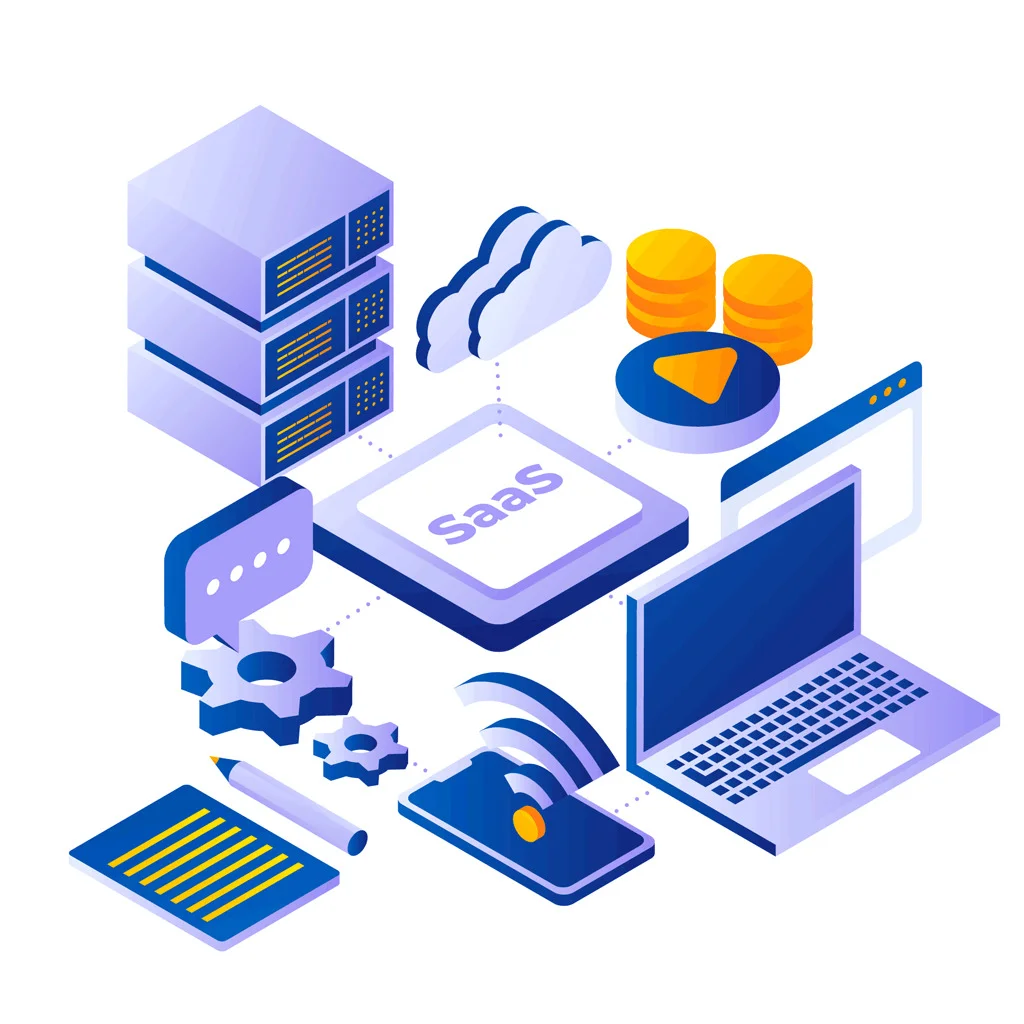Our SaaS solutions are fully managed and maintained by us, so our clients can focus on leveraging the software to achieve business objectives without worrying about updates, security, or downtime.
Software as a Service (SaaS) is a cloud-based delivery model where software applications are hosted and managed by a service provider and made accessible to users via the internet. Instead of purchasing and installing software on individual devices, users subscribe to SaaS solutions on a pay-as-you-go or subscription basis. Examples of popular SaaS solutions include Microsoft 365, Salesforce, Google Workspace, Slack, and Zoom.
SaaS eliminates the need for managing infrastructure, making it ideal for businesses of all sizes. It has become a key enabler of digital transformation, offering flexibility, scalability, and cost-efficiency.
- So basically, SaaS in USA eliminates the need for expensive hardware, software licenses, and IT support. Clients can enjoy predictable subscription-based pricing and reduced overhead by outsourcing infrastructure, maintenance, and updates.
- Our SaaS (Software as a Service) solutions provide enterprises with cloud-based software applications designed to enhance efficiency, improve collaboration, and reduce infrastructure costs.
- Enterprise cloud-based applications designed for efficiency and collaboration
- Reduces infrastructure costs significantly with fully managed platform

Key Benefits
Our SaaS Solutions benefit clients in the following ways
Cost Savings
- No upfront infrastructure investment
- Subscription-based pricing reduces software maintenance and IT personnel expenses
Accessibility and Remote Work
- Available anywhere with internet
- Supports distributed teams and is compatible across devices
Scalability and Flexibility
- Adjust subscription plans based on needs
- Add users or features with minimal effort
Automatic Updates and Maintenance
- Provider handles updates and security patches
- Businesses always access latest versions without downtime
Improved Collaboration
- Real-time collaboration tools including shared documents, messaging, video conferencing
- Seamless team coordination
Data Security and Backup
- Robust security measures including encryption and authentication
- Automatic backups minimize data loss
Integration with Other Tools
- SaaS solutions often integrate with other business tools via APIs
- Streamlining workflows and data sharing between systems
Faster Deployment
- Ready to use out of the box with minimal configuration
- No complex setup required
FAQ
Where curiosity meets clarity: Explore our frequently asked questions
Ready to Get Started?
Let's discuss how our saas solutions services can help transform your business.
Contact Us Today




